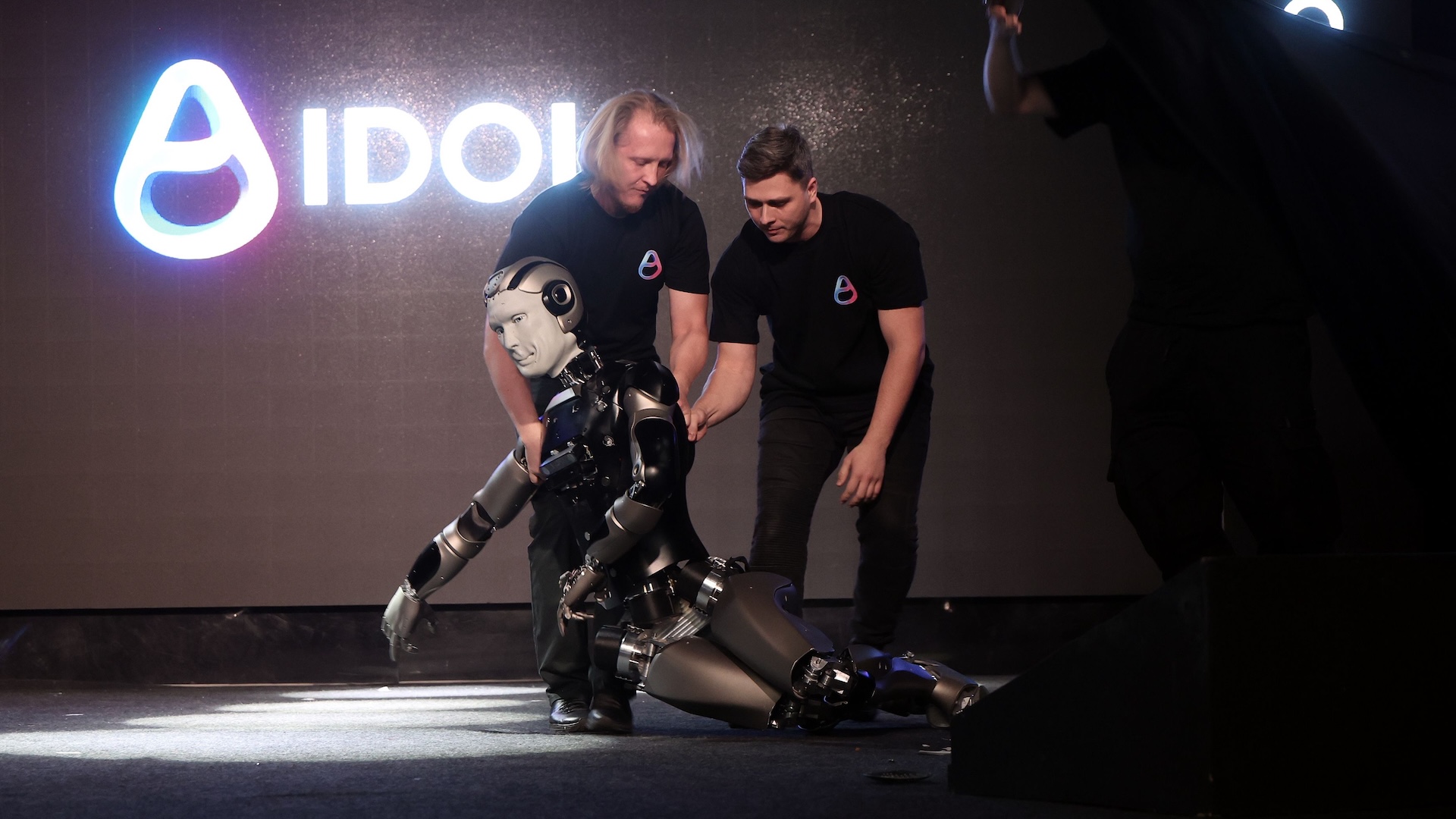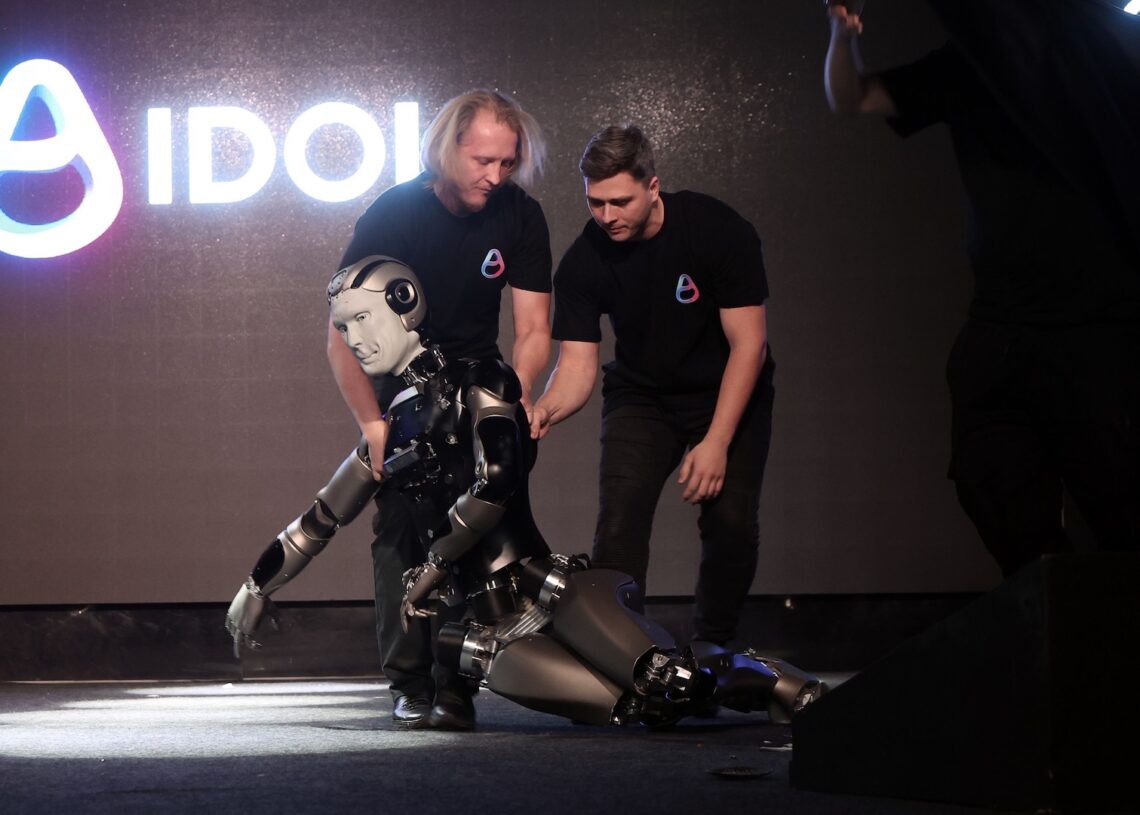
A humanoid robot’s highly anticipated debut quickly went awry when it stumbled onstage at a technology showcase in Moscow on Tuesday.
Backed by the theme song of “Rocky,” the robot, accompanied by two people, waddled onto the stage before a room full of journalists ready to catch a glimpse of what the developers called “Russia’s first anthropomorphic robot with artificial intelligence.” But in a scene resembling the end of a messy night at the bar, as the robot attempted to wave its right hand, it stumbled around before falling flat, face-first.
A humanoid robot’s highly anticipated debut quickly went awry when it stumbled onstage at a technology showcase in Moscow on Tuesday.
Backed by the theme song of “Rocky,” the robot, accompanied by two people, waddled onto the stage before a room full of journalists ready to catch a glimpse of what the developers called “Russia’s first anthropomorphic robot with artificial intelligence.” But in a scene resembling the end of a messy night at the bar, as the robot attempted to wave its right hand, it stumbled around before falling flat, face-first.
The two men accompanying the robot scrambled to drag it offstage, while other staff members tried to pull a black curtain across the stage to cover the blunder.
The robot, known as AIDOL, was created by a Russian company with the same name, which was registered in August 2025. Vladimir Vitukhin, AIDOL’s chief executive, said the autonomous robot is able to perform three essential tasks: movement, manipulation of objects and communication, a local news agency reported.
According to AIDOL’s website, the walking robot weighs 209 pounds (95 kilograms) and stands at 6 feet 1 inch (186 centimeters) tall. It can convey more than 12 basic emotions, carry up to 22 pounds of load and move at speeds of up to 3.7 mph, the website added. Its developers claim the robot is 73 percent localized, meaning it is built mostly from Russian components.
Vitukhin said the robot had been tested in a variety of conditions before the debut — “on stones, carpet, laminate, expanded clay and slippery floors,” according to the Moscow Times.
He believed Tuesday’s fall was probably the result of a voltage fluctuation and other environmental factors, including the lighting, but added: “Surely everyone felt sorry for it, and that’s one of its functions — to evoke sympathy,” the newspaper added.
AIDOL is the flagship project of Russia’s New Technological Coalition, a consortium of robotics companies and technical universities working to develop anthropomorphic robots. Alexey Yuzhakov, head of the coalition and founder of robotics company Promobot, told Russian business newspaper Vedomosti that he hopes to attract up to $50 million (4 billion rubles) in investments — from both Russian and foreign private investors and funds — for future developments.
He told the Russian state news agency Tass that the autonomous robot learns from the “consequences of its own action” and will “continue to improve.”
Once seen as a sci-fi fantasy, similar to flying cars, humanoid robots are now a reality, with major tech corporations investing big time.
Elon Musk’s Tesla is building its own humanoid robot called Optimus and said the robots will be “the biggest product ever in history,” while Meta and Google are working on integrating their own AI technology and research with humanoid robots, The Post previously reported. According to Morgan Stanley analysts, the United States is predicted to have 78 million humanoid robots at work by 2050.
The post Russia’s much-hyped humanoid robot face-plants onstage during debut
appeared first on Washington Post.




